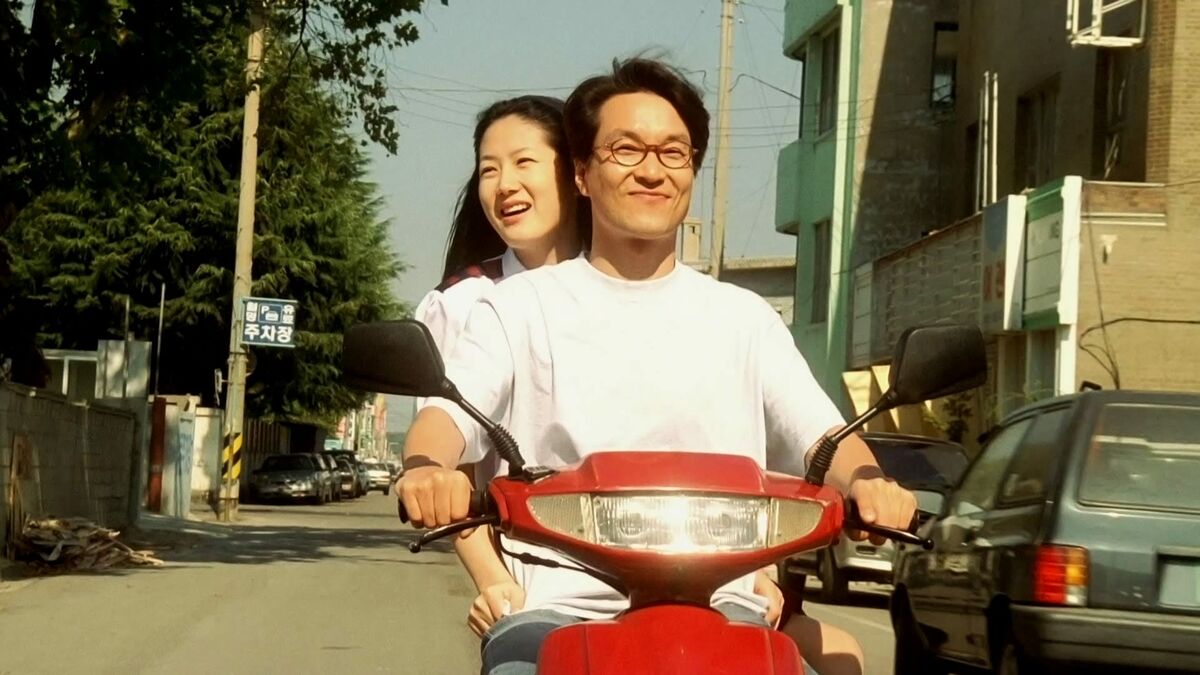meatthesavages.com – “Christmas in August” (8월의 크리스마스, Palwolui Keuriseumaseu), a 1998 South Korean romantic drama film directed by Hur Jin-ho, is a poignant and understated exploration of life, love, and acceptance in the face of mortality. Set against the backdrop of a sweltering summer in a small town, the film tells a quiet yet deeply moving story about a man facing his own mortality and the blossoming of a gentle connection with a young woman.
A Portrait of Everyday Life and Quiet Acceptance
The film centers around Jung-won (Han Suk-kyu), a man in his late thirties who runs a small photography studio. He lives a simple and routine life, caring for his aging father and interacting with the local community. However, Jung-won is also facing a terminal illness, a fact he accepts with quiet dignity and a sense of calm resignation.
Into his life comes Da-rim (Shim Eun-ha), a young traffic controller who frequently visits his studio to develop photos. Their interactions are initially casual, but a gentle connection gradually develops between them.
A Budding Connection Amidst Impermanence
The relationship between Jung-won and Da-rim is portrayed with a delicate touch. Their interactions are characterized by small gestures, quiet conversations, and unspoken feelings. Da-rim’s youthful energy and optimism bring a sense of vibrancy to Jung-won’s life, while he offers her a sense of stability and understanding.
Their connection blossoms amidst the backdrop of the sweltering summer heat, creating a sense of fleeting beauty and impermanence. The film subtly suggests that their connection is a brief but meaningful respite in the face of life’s inevitable changes.
A Farewell to Summer and Life
The film’s title, “Christmas in August,” is a poignant paradox, symbolizing the unexpected and premature arrival of winter, or death, in the midst of summer. Jung-won’s impending death casts a shadow over the narrative, but the film avoids melodrama, focusing instead on the quiet acceptance of his fate.
Jung-won spends his remaining time preparing for his departure, ensuring that his affairs are in order and that his loved ones will be cared for. He approaches his mortality with a sense of calm and grace, finding solace in the simple moments of everyday life.
Themes of Mortality, Acceptance, and the Beauty of the Ordinary
“Christmas in August” explores several profound themes:
- Mortality and Acceptance: The film deals with the theme of mortality in a sensitive and understated manner. Jung-won’s acceptance of his fate is a central theme, emphasizing the importance of living each day to the fullest.
- The Beauty of the Ordinary: The film celebrates the beauty of everyday life and the importance of appreciating the small moments that make up our existence. Jung-won finds joy in simple things like taking photographs, spending time with his family, and interacting with his community.
- Human Connection and Compassion: The film highlights the importance of human connection and the comfort that can be found in shared experiences. The gentle connection between Jung-won and Da-rim offers a sense of solace and understanding in the face of loss.
- The Passage of Time: The film reflects on the passage of time and the inevitability of change. The changing seasons and the flow of everyday life serve as a reminder of the impermanence of all things.
A Quietly Powerful and Moving Film
“Christmas in August” is a quietly powerful and deeply moving film that has resonated with audiences for its sensitive portrayal of life, love, and loss. The performances of Han Suk-kyu and Shim Eun-ha are subtle and nuanced, bringing depth and sincerity to their characters. The film’s gentle pace, beautiful cinematography, and evocative atmosphere create a truly memorable cinematic experience. It remains a beloved Korean classic, appreciated for its timeless exploration of the human condition.
